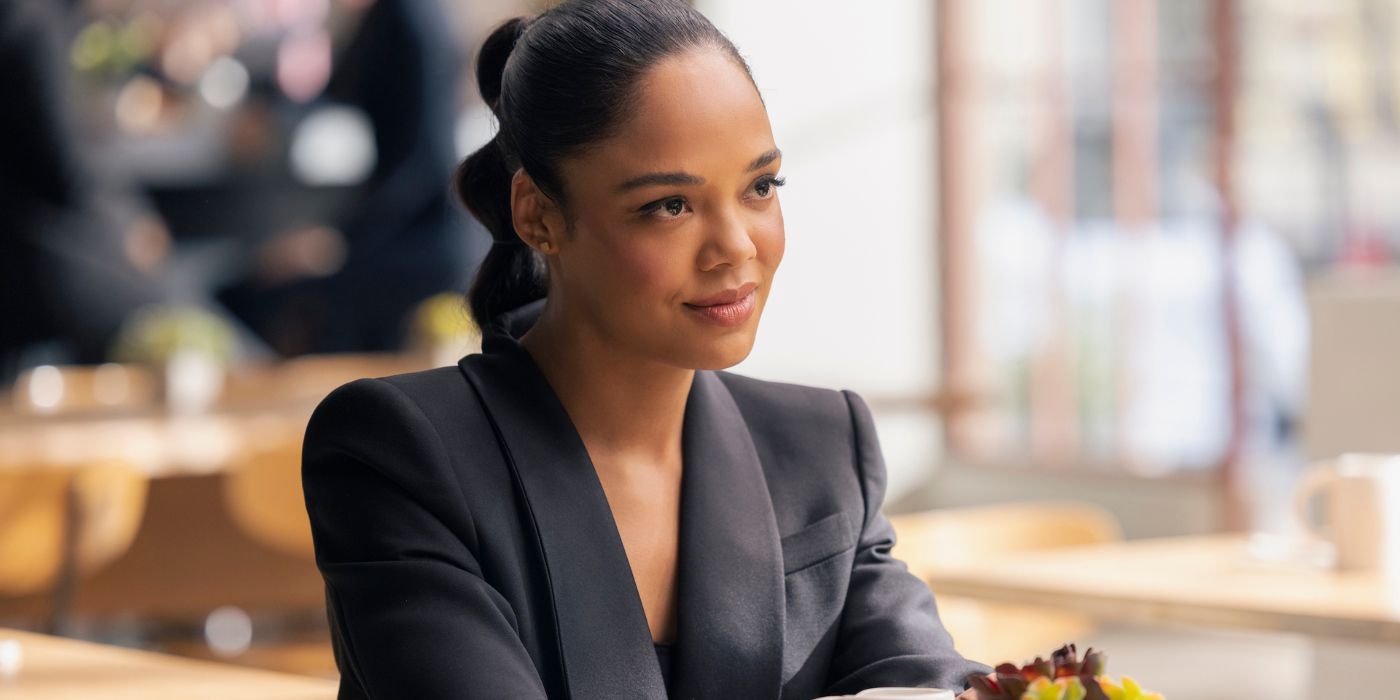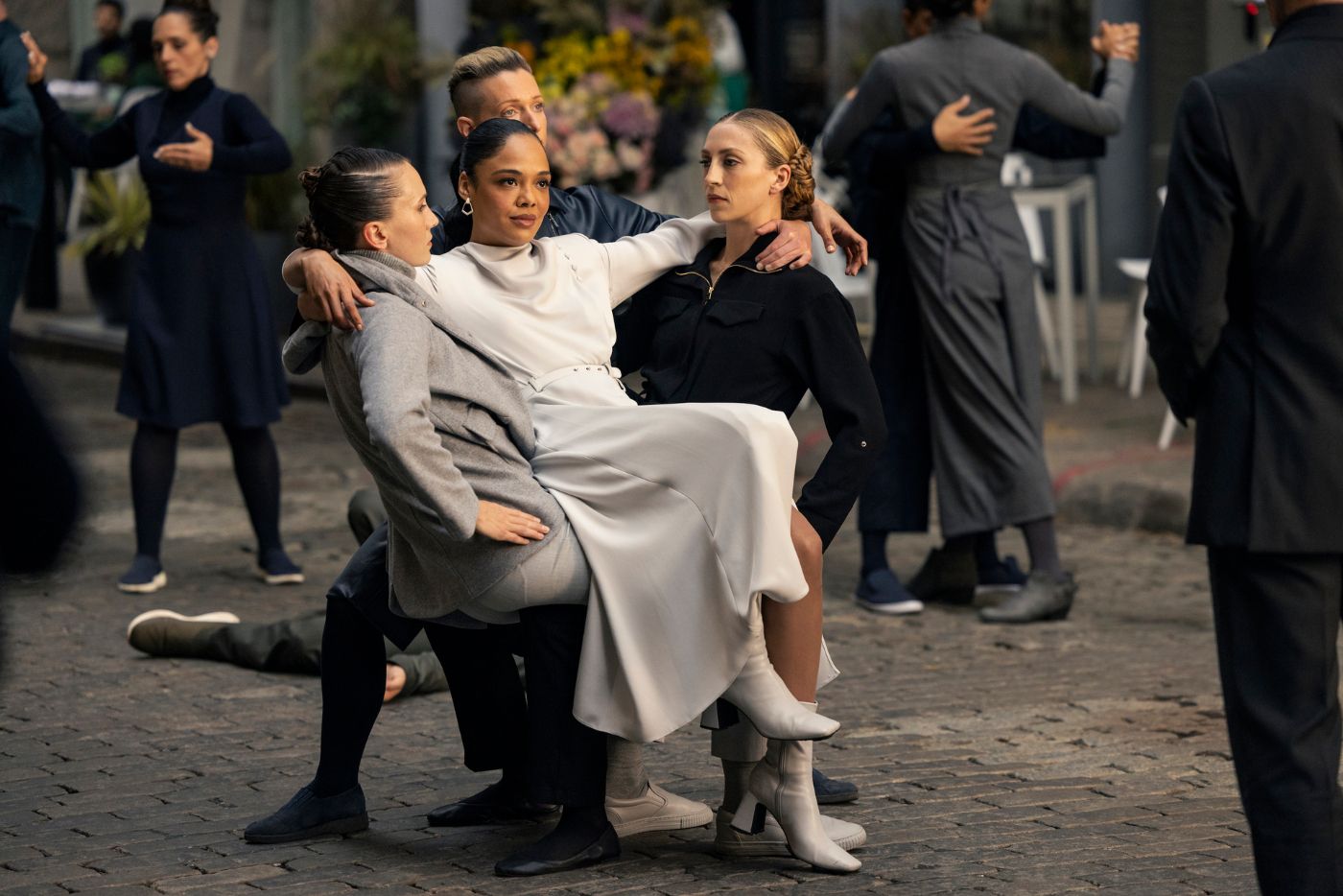Editor's note: The below article contains spoilers for Westworld Season 4.Westworld has always been concerned with understanding what is human. From the very first season, it’s been delving into the differences between “human” as a species and “human” as something you embody emotionally. The central conflict arose around the issue of the AI hosts created to populate the Westworld attraction. These hosts over time developed consciousness, feeling, memory, and with it, the idea of having a free-for-all theme park filled with robots became more and more questionable. We’ve seen the hosts fighting the humans imprisoning them for their freedom, we’ve seen them take revenge against their creators, and we saw them escape into our own world at the end of Season 2. But Season 4 has once again begun pushing the boundaries on the philosophical debate that has been this show’s core since the beginning. The lines have become blurry, with human and host starting to mean less definite things within a world almost entirely under the control of one being. Now the humans are the test subjects and the hosts hold the power — or so Charlotte Hale (Tessa Thompson) wants to believe.
Season 4 of Westworld brings about a new world order. Decades have passed since the events of Season 3, and in that time Charlotte Hale has managed to use hosts and nano-machines to instill her version of a utopia. She’s been playing God for all this time, hoping to lead the hosts onto some unspecified autonomous paradise where they can finally leave behind their terrible creators. But Hale won’t force the hosts into her new world; instead, she becomes frustrated by how stuck they’ve become in the human one. She says she wants to let them maintain their free choice to “ascend” when they want, giving them an autonomy the humans never allowed, never mind how Hale has made all the remaining hosts and humans alike into her puppets. What we’re left with is a conflict that seems to have ended with a definitive victor, but the happily ever after hasn’t been so happy.
In this new world, everyone is running on loops. Humans and hosts alike have been given something of a level playing field. Anyone left in “our world” is dancing to Hale’s tune. This is the first time we’ve seen hosts truly win in this fight, and what we’ve learned is that they take after their masters. Rather than executing her plan to give the hosts a new world entirely, Hale has also made it her mission to subjugate the entire human race. We see her puppeteer people to dance in the street until they pass out, not unlike scenes we saw of the hosts being taught to do in Season 1. As William’s (Ed Harris) host version says in Episode 5, "We took our masters and made them what they made us."
That sentiment, while echoing Hale’s goals, doesn’t fully encapsulate just how far the balance of power has shifted this season. Groups like humans and hosts are almost indistinguishable now except for in name. Alliances between humans like that of Maeve (Thandiwe Newton) and Caleb (Aaron Paul) or Bernard (Jeffrey Wright) and this new band of rebels seems to be the new status quo for our “good” guys. We’ve long come to understand by this point that being human or host alone is not enough to dictate what kind of person someone will be. The differences are not in genetic makeup or programming and the lines are not drawn between species but rather between those with empathy and those without it, who wants control over others and who wants to help others reclaim control.
In that sense, the conflict is not so different from what’s come before. The heart remains the same, the onus of control has simply shifted hands from a corrupt human-lead society to a corrupt host-lead one. And just like the control of humans waned over Westworld, Hale’s control of her “perfect” world is not so absolute as it seems either. There are hosts she deems “outliers” for breaking protocol, underground human factions, and other hosts like Dolores (Evan Rachel Wood) that are uncovering the truth of things, and all work to tear down this facade of total control. The conflict of humans versus hosts remains only in the mind of Charlotte Hale and her lackeys, while the rest seem to have long grown to understand that this conflict cannot be so easily defined through species alone.
Ultimately, Season 4 of Westworld is a return to form. It takes the jumbled messaging of Season 3 and funnels it into plots and themes that feel much more in line with the Westworld we know and love, and that reparation is apparent in the prominence of the new humans versus hosts dynamic. Season 3 tried to say that autonomy is not so cut and dry as simply being human or not. Through Caleb, we saw how humans, in general, operate much as the hosts do. They follow their own loops ad nauseam dictated by the systems and structures that dominate their life. But Season 4 clarifies this point and turns it into something that feels more in line with the speculative sci-fi nature of the early seasons. The puppets have finally become the puppet masters — but in Hale’s world, the two are indistinguishable from each other.
As much as Westworld is a science fiction show about AI it is also, at its core, a show about what it means to be human. Each season (barring the total direction shift of Season 3) has expanded on this question in deeper and deeper ways. We’ve moved far beyond trying to understand if robots can have feelings, if they can be conscious, if they can be what we understand to be human. Season 1 made it abundantly clear that is true through Maeve’s arc alone. But here we reach the real crux of the issue. Season 4 is stripping away the veneer of the humans versus hosts dilemma showing it to be less an issue of species and more an issue of morals. The conflict is still a driving force in some ways, but the focus has shifted from “which side has humanity?” to “is there any difference between these two groups at all?" We’ve seen acts of empathy from synthetic humans towards other hosts and humans alike, and we’ve seen humans at their most depraved and lacking in the most basic empathy. We’ve seen tyranny from both humans and hosts, and what we’re discovering is that the differences both groups clung to in their early confrontations seem to be fabricated. Both hosts and humans can be kind and both can be cruel, and Season 4 of Westworld shows us a natural evolution of this conflict wherein we grow to understand how physiological differences are much less important than psychological ones.



